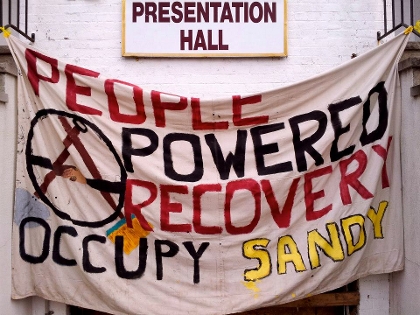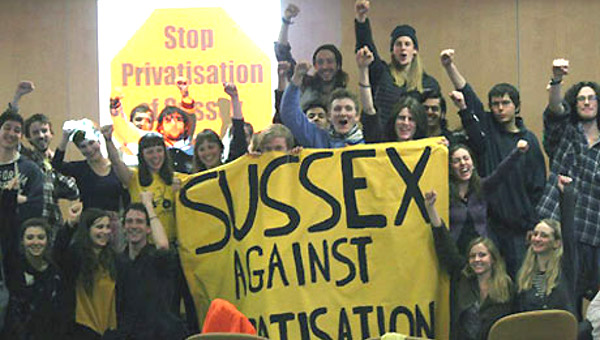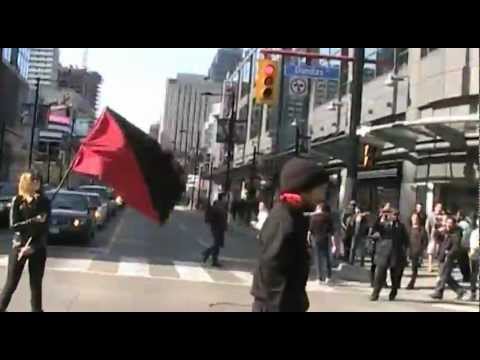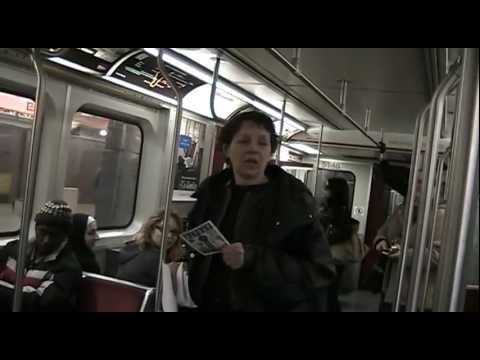Occupy Wall Street: Why Bother the Bankers?
“Blood-suckers of Wall Street”
When he ran for president in 1948, Harry Truman complained of the “blood-suckers of Wall Street,” an unkind characterization of the upstanding bankers and financiers who manage America’s money so brilliantly. Over sixty years later we now find a large number of Americans out on the Streets of Finance repeating Harry’s commentary, rather less politely. Why choose the titans of finance on Wall Street to trash?
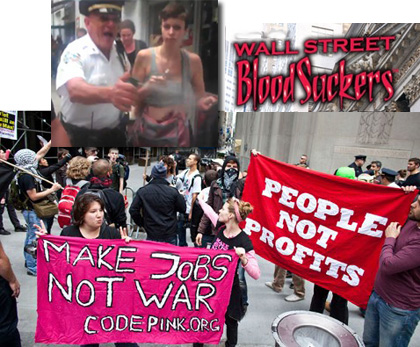
Might it be because in addition to committing the crime of the century by causing the Great Financial Crisis (we have almost ninety years to go, so they have ample opportunity to do even worse), they are, as Harry pointed out, social and economic vampires. A few simple and easily accessible, yet largely unnoticed, statistics demonstrate the blood-sucking. In 1950 the U.S. finance and insurance business generated (i.e., siphoned off) 2.4 per cent of national product, rather slim and meager pickings. After reaching three per cent in 1953, the titans of finance required fifteen years to achieve four per cent (1968), and another thirteen to hit five (1981).
To the immeasurable good fortune of the bankers and swindlers, Ronald Reagan initiated reduction in financial regulations. Blessed with this more favorable environment for larceny, it took only six years to reach six per cent (1987). There the share seemed stuck, requiring a decade to rise to seven (1996). However, in the mid-1990s Bill Clinton would render the Reaganite deregulation small potatoes, and now the good times roll: over eight per cent at the end of 2000, and, with the help of Obama bailouts almost eight-and-one-half in 2010 (financial fleecing is never so good as when times are bad).
The Size of the Ripoff

Figure 1: America has too much ??? (fill in the blank). [Public sector value added and financial sector value added,
percentage of gross national product, 1950-2010]

Figure 2: The Growth of Big Government [Index of public sector and financial value added, 1950 = 100,
per cent of GDP, 1950-2010]
Notes: The financial sector share is the national income category “finance and insurance,” and the public sector is designated “Government” in the accounts, which includes federal and local. Value added includes “remuneration,” taxes net of subsidies and “operating surplus.” By definition the public sector has only remuneration. If the pubic sector percentage seems low, recall that it excludes purchases of goods and services (computers, tanks, construction).
If you think eight-and-one-half per cent for financial robbery is not excessive, compare it to its béte noire the public sector. In 1950 the “value added” (wages and salaries and other income payments) of the public sector (“government”) was 10.7 per cent of gross national product, while, as noted, finance was 2.8 per cent, a ratio close to four. In 2011, the pubic sector had crept up slightly to 13.3 per cent, and the new ratio is less than two, 1.6 (see Figure 1). The growth of private robbery compared to public provision becomes all the more shocking if both shares are set to 100 in 1950 (see Figure 2). Over the fifty years the finance share grew at a consistent rate close to two per cent annually, while the public sector reached its peak share in 1971 and has subsequently defined.
Why should we worry about Wall Street? Well, for starters, if present trends hold, sometime in the 2030s the financial industry will be larger than the entire public sector, federal, state and local. Those who garner these financial riches, the “malefactors of great wealth” (Theodore Roosevelt), demonstrate repeatedly that their institutional mission is the destruction of the wealth of society not its creation.
The positive role that banks play in a capitalist society is simple and narrow. In the absence of lending institutions the growth of companies would be limited to the profits they generate. This limit would greatly reduce the dynamic character of capitalism, because it would prevent the de facto transfer of capital from declining to expanding sectors of the private economy. The nature of capitalism does not require the lending function to be either profit making or private. When it is, the potential for disaster is created.
Grabbing a Lot For Not Doing Much
The lending function involves no substantial risk to the lender because legally the bank has first claim on compensation should the borrowing company go bankrupt and be forced to sell its assets. The risks come from the behavior of financial capital itself. The useful role of finance is quite limited, it does not produce, transport or market. It does nothing other than extend credit that is legally constrained by the deposits it receives (i.e., it does not even lend its own money). As a result the return it can obtain by doing little more than nothing is equally limited.
A central tendency in the history of capitalism has been finance attempting to break out of the limited role that the social relations of production and distribution assign it. When allowed, it does so through speculation, which essentially is buying in order to sell without any productive function. Risk is inherent in speculation because the gain of the speculator is by definition someone else’s loss. Without risk, no speculation; without speculation very little risk. Speculation and the risk it thrives upon brought the Great Depression of the 1930s. To prevent it occurring again, Franklin Roosevelt’s administration proposed and Congress passed several laws severely limiting the activities of financial capital, the most famous being the Glass-Steagall Act of 1933. Reagan, Bush I, Clinton and Bush II would measure-by-measure undertake de facto repeal of that limiting legislation.
The Great Financial Crisis was the fruit of that repeal, a crimes of historic proportions that generated almost seven million newly unemployed. As terrible as the Crisis was and will continue to be as the decade unfolds in stagnation and misery, there is a worse, long term consequence of the repeal of financial regulation. Liberating finance capital to speculate liberates it to apply its ill-got gains to its central task, political power and destruction of all vestiges of the welfare system that provides capitalism with a degree of decency. To quote Franklin D. Roosevelt,
“…[T]he acquisition of wealth…through excessive profits, creates undue private power over private affairs and, to our misfortune, over public affairs as well.” [State of the Union address 1935]
“…[T]he liberty of a democracy is not safe if the people tolerate the growth of private power to a point where it becomes stronger than their democratic state itself.” [Message to Congress 1938]
I can return to my earlier question: why are so many people protesting against Wall Street? Because it has become stronger than our democratic state and if unrestrained will take us down the dark road to political dictatorship to join the economic tyranny it currently enjoys. I’ll be in New York next week and plan to take a walk down Wall Street. •


